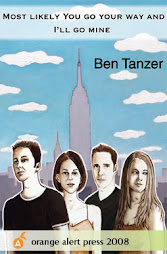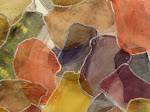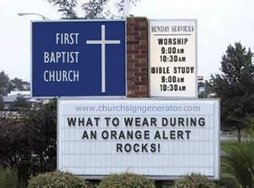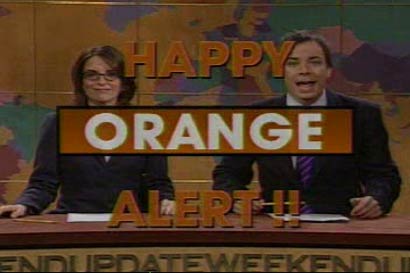
Dominique Holmes
The essence of creativity is exploration, and Chicago's Dominique Holmes has explored so many avenues of creativity that is was difficult to know where to feature her on the site. She has worked with book art, film, painting, and drawing, but the first place that I saw her work was on THE2NDHAND as writer. She is full of creativity and is trying to experience everything life has to offer. The most exciting aspect of her work, in any platform, is the way she searches through images and words, figures and shadows, hoping that she is conveying the message. It will be fascinating to watch her path and see how she grows and where she goes.
The essence of creativity is exploration, and Chicago's Dominique Holmes has explored so many avenues of creativity that is was difficult to know where to feature her on the site. She has worked with book art, film, painting, and drawing, but the first place that I saw her work was on THE2NDHAND as writer. She is full of creativity and is trying to experience everything life has to offer. The most exciting aspect of her work, in any platform, is the way she searches through images and words, figures and shadows, hoping that she is conveying the message. It will be fascinating to watch her path and see how she grows and where she goes.
Recently, Dominique was kind enough to answer a few of my questions.
Orange Alert (OA): You work in several different mediums, but you recently participated in the 2ndhand's mixtape reading. Do you enjoy reading your work? Does Chicago seem like a great place to read?
Dominique Holmes (DH): I do not enjoy reading my work. I never have. Every part of me shakes, and it's not something I can control. My tongue turns rubbery and I lose the ability to enunciate. At some point, each one of my teachers has interrupted me and said, "Do you think you could speak up just a bit?" or worse, "Can anybody hear her?" at which point my compassionate classmates would look at my sweaty radish of a face and lie. All things considered, Chicago is a great place to read. The people who go to these readings are wonderful, often multi-talented individuals who are genuinely interested in hearing stories. There is a sense of perpetual productivity, and it's contagious.
OA: Is there a medium that you focus on or feel more comfortable working in then others?
DH: Drawing, probably. It's intuitive, and as much about solving problems as it is about telling stories. I enjoy following artists and seeing their work develop because they all seem to go through phases of experimentation and questioning which implies that they don't know what they're doing any more than I do. I love that the difference between a large, labored drawing, and a quick rudimentary scribble is slim. The response is immediate. Still, there's no way to predict what that response might be. Art is subjective. I am partial to work with a narrative, whether that narrative is vague or clearly depicted with no room for speculation.
This answer confuses me, especially since I focused on filmmaking for my bachelor's degree.
OA: I really like the poster you did for Kaspar Hauser, do you see yourself getting more involved in rock posters? There is a really productive poster art scene right now.
DH: Thanks, I had a great time with that poster. Music and drawings have a way of complementing each other. When they're together, the drawing has a sound and the music has an image. This is basic, but thrilling. I intend to continue melding the two, be it through posters, films, adorning websites, CD designs or really anything I can get my hands on. Also, it helps to validate my art by giving it a purpose, using it as a means of communication.
OA: I have always been fascinated by altered books in all of there various forms, and it only grew whenI got to talk with Brian Dettmer a year ago. How did you get invovled in altered books and what approach did you take with your project?
DH: Books are great. The book-reader relationship has a lot to offer. It's one thing to look at artwork on the walls of a gallery or on pedestals, but it's a completely different experience to touch it, pick it up, hold it, and turn the pages. Comforting, I think, and less glorified. I started getting involved in altered and artists' books when I took a bookbinding class at SAIC and was encouraged to dig through the Joan Flasch artists' books collection at the school, which is basically a gold mine. It's amazing.
Orange Alert (OA): You work in several different mediums, but you recently participated in the 2ndhand's mixtape reading. Do you enjoy reading your work? Does Chicago seem like a great place to read?
Dominique Holmes (DH): I do not enjoy reading my work. I never have. Every part of me shakes, and it's not something I can control. My tongue turns rubbery and I lose the ability to enunciate. At some point, each one of my teachers has interrupted me and said, "Do you think you could speak up just a bit?" or worse, "Can anybody hear her?" at which point my compassionate classmates would look at my sweaty radish of a face and lie. All things considered, Chicago is a great place to read. The people who go to these readings are wonderful, often multi-talented individuals who are genuinely interested in hearing stories. There is a sense of perpetual productivity, and it's contagious.
OA: Is there a medium that you focus on or feel more comfortable working in then others?
DH: Drawing, probably. It's intuitive, and as much about solving problems as it is about telling stories. I enjoy following artists and seeing their work develop because they all seem to go through phases of experimentation and questioning which implies that they don't know what they're doing any more than I do. I love that the difference between a large, labored drawing, and a quick rudimentary scribble is slim. The response is immediate. Still, there's no way to predict what that response might be. Art is subjective. I am partial to work with a narrative, whether that narrative is vague or clearly depicted with no room for speculation.
This answer confuses me, especially since I focused on filmmaking for my bachelor's degree.
OA: I really like the poster you did for Kaspar Hauser, do you see yourself getting more involved in rock posters? There is a really productive poster art scene right now.
DH: Thanks, I had a great time with that poster. Music and drawings have a way of complementing each other. When they're together, the drawing has a sound and the music has an image. This is basic, but thrilling. I intend to continue melding the two, be it through posters, films, adorning websites, CD designs or really anything I can get my hands on. Also, it helps to validate my art by giving it a purpose, using it as a means of communication.
OA: I have always been fascinated by altered books in all of there various forms, and it only grew whenI got to talk with Brian Dettmer a year ago. How did you get invovled in altered books and what approach did you take with your project?
DH: Books are great. The book-reader relationship has a lot to offer. It's one thing to look at artwork on the walls of a gallery or on pedestals, but it's a completely different experience to touch it, pick it up, hold it, and turn the pages. Comforting, I think, and less glorified. I started getting involved in altered and artists' books when I took a bookbinding class at SAIC and was encouraged to dig through the Joan Flasch artists' books collection at the school, which is basically a gold mine. It's amazing.
For the Fractional Horsepower Electric Motors project, all I did was cut into a book I was never going to understand and turn it into an object I could appreciate. I got rid of most of the text to reveal the diagrams and photographs layered inside the book. There was no rearranging or pasting, but I did pick and choose which images I wanted to see emerge. The end result is simple—from the front, the diagrams and text describe the parts of a generator, and from the back, there's a guy working at the machine. Har har.
OA: I saw you mention The Siberian Mouth on your site. What did you think about Chris Bower's latest play?
DH: Fantastic. I am a big fan of Chris Bower's work. He has a singular approach to storytelling—one that might be ridiculous in the hands of someone else. What sets Chris apart, aside from his willingness to explore areas writers generally avoid, is that his writing is both strange and intelligent. I was skeptical when I realized Chris wasn't actually in the play (I love watching and listening to him, creep that I am), but his actors performed wonderfully and handled the material well, surpassing my expectations and embarrassing me for having expectations in the first place. Even though he wasn't physically on the stage, everything I adore about Chris Bower's writing was there. The kangaroo on wheels was the most beautiful thing I have ever seen.
OA: I saw you mention The Siberian Mouth on your site. What did you think about Chris Bower's latest play?
DH: Fantastic. I am a big fan of Chris Bower's work. He has a singular approach to storytelling—one that might be ridiculous in the hands of someone else. What sets Chris apart, aside from his willingness to explore areas writers generally avoid, is that his writing is both strange and intelligent. I was skeptical when I realized Chris wasn't actually in the play (I love watching and listening to him, creep that I am), but his actors performed wonderfully and handled the material well, surpassing my expectations and embarrassing me for having expectations in the first place. Even though he wasn't physically on the stage, everything I adore about Chris Bower's writing was there. The kangaroo on wheels was the most beautiful thing I have ever seen.
OA: What's next for Dominique Holmes?
DH: I'm working on a story called Eggplant. It's about a boy named Eggplant, and it takes place on an unnamed island with a non-threatening war on the horizon. The story is full of Nuns, weather, scavenging dogs, fondling, and dead people coming back to say hello. Also, I'm finishing up a painted 16mm and super-8 film, which has taken me three years, but which will probably only end up being about seven minutes long. Plus, more drawings, possibly featuring buffalo in striped pyjamas.
Bonus Questions:
OA: What type music do you enjoy and who are a few of your favorites? Do you have a favorite Chicago band right now?
DH: I'm working on a story called Eggplant. It's about a boy named Eggplant, and it takes place on an unnamed island with a non-threatening war on the horizon. The story is full of Nuns, weather, scavenging dogs, fondling, and dead people coming back to say hello. Also, I'm finishing up a painted 16mm and super-8 film, which has taken me three years, but which will probably only end up being about seven minutes long. Plus, more drawings, possibly featuring buffalo in striped pyjamas.
Bonus Questions:
OA: What type music do you enjoy and who are a few of your favorites? Do you have a favorite Chicago band right now?
DH: All types, but I love going to concerts and I hate crowds, so my favourites tend to be bands that play at smaller venues. A few: Hauschka, The Thermals, Explosions in the Sky, The Mountain Goats, Liam Finn, Arab Strap, The Books, Pela.
Exceptions to the rule: Iggy Pop and The Stooges, Television, Johnny Mathis, Édith Piaf, Richard Hell and the Voidoids. Local favourites: Kaspar Hauser, Jeff Harms, Wonderful Flying Machines.
Exceptions to the rule: Iggy Pop and The Stooges, Television, Johnny Mathis, Édith Piaf, Richard Hell and the Voidoids. Local favourites: Kaspar Hauser, Jeff Harms, Wonderful Flying Machines.
OA: Coffee? If yes where can you find the best cup in Chicago?
DH: No Coffee. Tea. More specifically, Twinings English Breakfast tea, but that's not what you asked.
DH: No Coffee. Tea. More specifically, Twinings English Breakfast tea, but that's not what you asked.
For more information on Dominque Holmes please visit her website.
+by+Nick+Volkert).jpg)





















1 comment:
the artwork is so great...love it domz.
Post a Comment